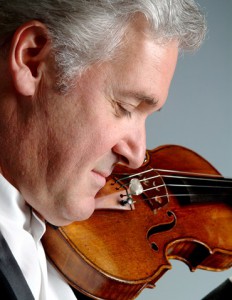Imogen Cooper is the kind of pianist who, as the saying goes, puts herself entirely to the service of music. In a way this is to say that her performance draws attention not to pianistic performance per se but to the expression of music through the performance. The relatively “un-showy” programme hinted at this, and Cooper’s impeccable pianistic finish, the cherry on the cake, made this one of the most gratifying recitals I have been to.
She opened with the Barcarole, one of Chopin’s transcendent masterpieces. The piece’s basic rhythmic resemblance to the Italian gondoliera often provokes various degrees of dance-like treatment - not so with Cooper, who started out with a pace almost too slow to dance to. Yet the gentle ripples under her fingers had a sense of serenity that put all urges to dance to rest, and though relaxed her grip on the narrative never loosened. Slowing everything down, Cooper spun singing lines with a mesmerizingly refined cantabile and countless shades of nuances. The final apotheosis was exultant but not explosive, and with an aftertaste of dignified passion that proved more deeply soothing than most interpretations.
The dexterity and tonal control Cooper demonstrated in the Barcarole indicated she was, aged 65, technically very secure. Schumann’s dispersive Humoreske came off convincingly as a series of mood paintings, whose emotional and expressive variety Cooper fulfilled at every turn with a patrician air of ease and, when needed, power. Her layering of voices was executed with a superb legato, aided by a warm and full-throated sonority in chordal sections.
A characteristic of Cooper’s phrasing, especially when, in order to be expressive, she prefers to be slow rather than fast, is its capacity to sustain a line with rubato. While it added much to the poetry in the Barcarole and the Humoreske, some of the squarer numbers in Schubert’s German Dances D. 790 (the first, for example) sounded slightly out of shape. Not only did Cooper teased with the pulse, she also consciously gave prominence to the top voice in chordal passages. The lighter waltz numbers were the best: Cooper’s feeling for the Viennese lilt (a kind of indescribable rubato between the second and third beat) was genuinely beguiling. The set of dances ended up sounding beautiful and melodious (instead of rustic and invigorating, as in some interpretations), which certainly pleased the audience as it came to a quiet and unexpected end.
The D. 959 Sonata was, naturally, the highlight of the night. This was Schubert as his most original and profound, and musical expression at its richest and purest. Cooper’s rendition was one that is completely without pretence, emanating both confidence and humility in its unhurried process of unfolding. In terms of pianism and imagination, it was a tour de force: the several reiterations of the second theme in the first movement were each imbued with different degrees of exquisite pianissimi; the climaxes in the first and last movements were treated in a way that reminded me of the late Celibidache’s Bruckner: the accumulation of power was long and evenly drawn out, and its release was massive rather than pungent. In general, Cooper’s way with dramatic tension and especially the pauses that contributes to the tension allowed them to fully breathe, which was tantamount to allowing them to be fully experienced in the acoustic space of the hall.
Musically, if Cooper’s rendition didn’t go down the abyss of existential suffering as some did (Sokolov and Richter come to mind, although Richter only recorded D. 958 and 960), it spoke of patience, faith and sympathy. Two particular instances in Cooper’s performance struck me as revelatory: in both the coda of the first movement and the passage just before the coda of the finale the narrative seems to be fragmentized, or come to a halt, as if, after a journey fraught with difficulties, it has exhausted itself. While the first movement went on to end in a mood of resignation, and the finale with a final affirmation of vital strength, the way Cooper caressed (as if with a loving smile - I didn’t really look at her face) these momentary phrases that were incapable of completing themselves was - alas - human, all too human. The thought also came to me when she almost seemed to have exceeded her own strength in a few hesitant fortissimo chords (just after the central outburst in the Andantino), a passage that evidently went so much against Schubert’s own gentle temperament he must have written them in torment.
In sum, then, a great success. Cooper looked pleased as the applause went on and gave a small encore: the F minor Moment musicaux (D. 780). The touch was by turns crisp and gentle, and ended like a brief breeze. Music-making like this does not come by easily, and tonight it makes a nice case for inviting serious artists without big names to town.
本網站內一切內容之版權均屬國際演藝評論家協會(香港分會)及原作者所有,未經本會及/或原作者書面同意,不得轉載。









